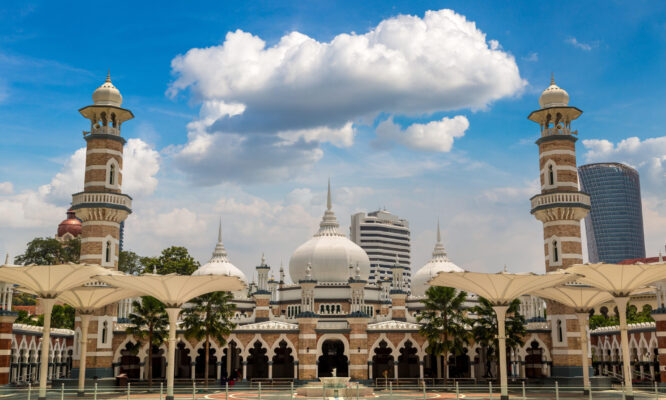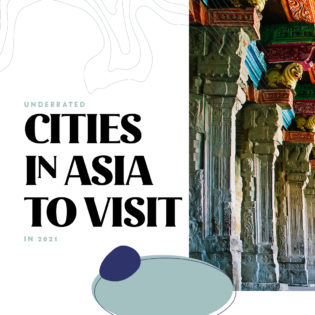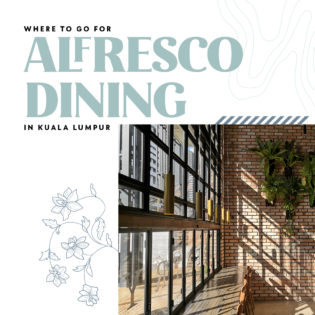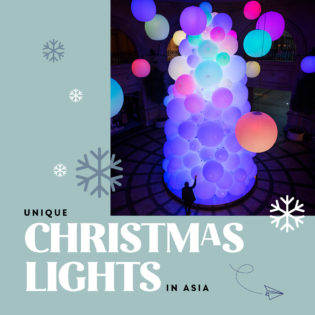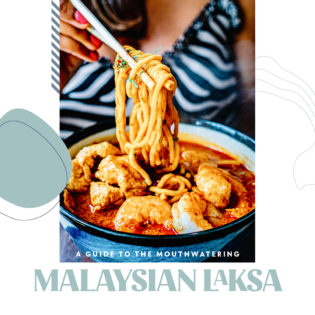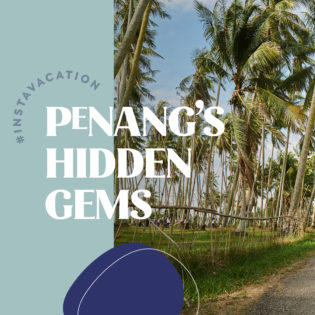Tea takes the limelight as the latest cool caffeine buzz.
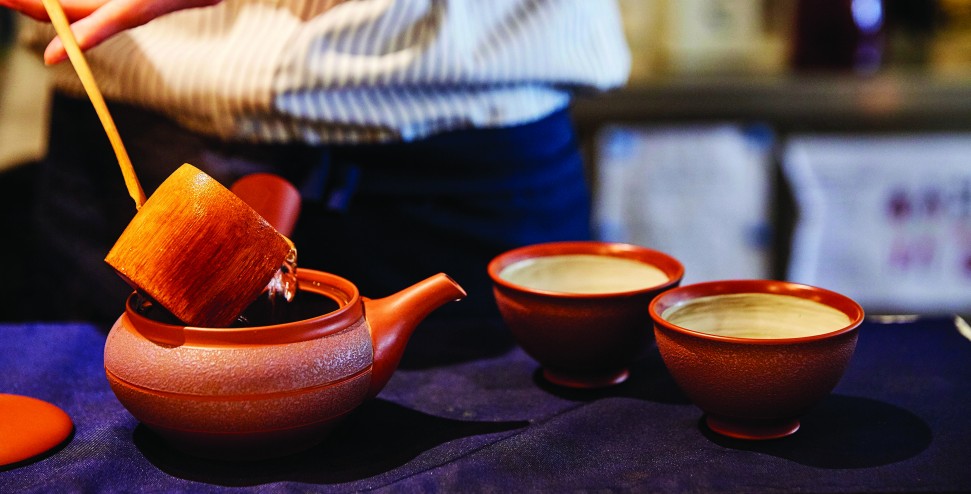
Discovered in ancient China, tea has a long and complex history. Known for its flavour and restorative properties, the consumption of tea spread across the world over thousands of years, embraced and adapted to suit local tastes. In Malaysia, our national drink is the teh tarik or pulled milk tea.
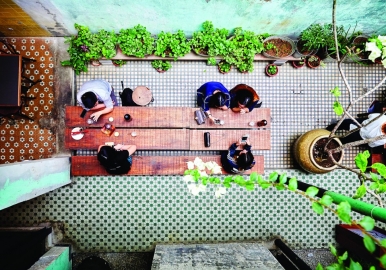
The humble tea may be the world's most consumed drink after water, but as an up-to-trend drink, it hasn't had the hip factor of coffee, especially with younger consumers. That could change in the Greater Kuala Lumpur area with a wave of tea-led outlets that are upscaling the tea drinking experience.
Enter Chocha Foodstore in Chinatown. One of the loveliest eateries in Kuala Lumpur, a feat in a town laden with good-lookers, Chocha (which means sit and drink tea in the Hokkien dialect) concentrates on tea as a means of pairing it with modern Asian food.
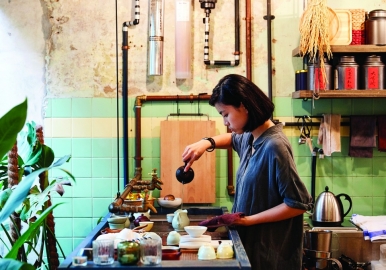
The brainchild of an architectural firm, MentahMatter Design, Chocha Foodstore sits on the premises of an abandoned hotel, which currently also houses a cocktail bar and offices. The café with original pastel-tiled lined walls, exposed concrete and a courtyard lined with plants attracts the Instagram-snapping, café-going crowd who come for the food and the ambience, sampling the tea along the way.
“The Chinese way of drinking tea is not only about the flavour but the overall experience. We wanted to create a casual tea-drinking experience for people, as long as you respect the tea,” says Shin Chang, co-owner and architect.
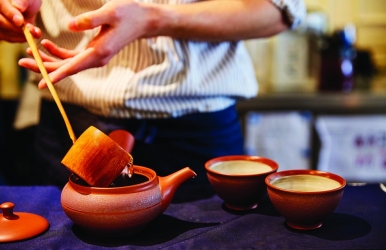
The curated tea menu has several categories: black, green, white, dark, oolong and even raw pu-er. Familiar names such as Ali Shan Cha mingle with more unique varieties; try the bold and smoky Lapsang Souchong, which pairs well with the robust flavours of Chocha Foodstore’s Bang Bang Chicken. Shin and his partners, all avid tea drinkers, regularly update the tea menu, with some varieties coming from their collections.
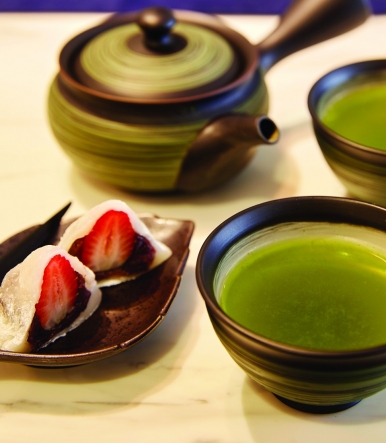
When it comes to drinking tea, the Japanese have elevated the practice into an art form. The tea ceremony in Japan, refined over several centuries by Zen Buddhist monks, is as much about life as it is about aesthetics and religion. It is also associated with matcha, a premium powdered green tea, which is currently trending as a superfood ingredient.
“When you talk about matcha, it is green tea. But we want to show that green tea is more than just matcha,” says Kaoru Obana, the manager at Tea Press, a Japanese tea roaster and café with branches in the neighbourhoods of Damansara Uptown and Bangsar. Operated by the Tokyo Takuhai Group, this elegant café wants to promote the art of drinking tea, Japanese-style, in a contemporary setting, complete with bright blue frontage and cool marble counter tops.
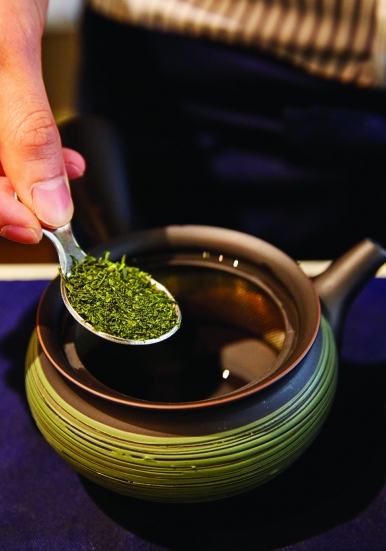
It starts with the tea, which Tea Press sources from Shizuoka, the top tea producer in Japan. The café uses fukamushi sencha, steamed longer than your typical green tea to produce a less astringent flavour with more body and sweetness. Once brewed, the sencha is steeped another two times, each time producing a different taste. The first produces a light-coloured green tea with a strong umami flavour. The second has a strong green colour and an obvious bitterness that hits on the first note, called nigami. The final pour has what the Japanese call shibumi, which roughly translates as “the bitterness that is found at the back of your throat”.
Other types of tea here include the roasted hojicha and genmaicha, sencha with roasted brown rice, as well as the prized gyokuro, also known as the king of Japanese green tea. “The quality of our leaves is very high, and it is strong-tasting,” says director Yoshiki Nagai, who recommends having the tea with wagashi, such as the best-selling strawberry daifuku. In the Japanese tea ceremony, the beautifully crafted Japanese confections provide a sweet counterpart to the bitterness of the tea.
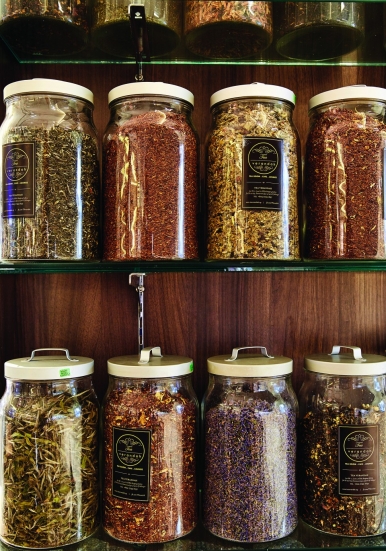
Meanwhile, Joan Lee concentrated on European loose tea leaves for her menu at Tea Verandah. The tea lounge, situated in Atria Shopping Gallery and The Starling mall in Petaling Jaya, offers a good range of all-natural herbal infusions and tea blends, sold alone or as part of popular tea sets.
A tea enthusiast, Lee started with 30 different types of tea blends from Germany, which has some of the world's top blenders. These premium tea companies favour high-quality loose teas and single-origin teas, as well as the use of herbs for medicinal purposes.
Lee soon realised, however, that some flavours were slow to catch on. “Malaysians don't like yoghurt or herbal teas. They like flowers,” says Lee. “They prefer tastes that they are familiar with, like lemongrass and chamomile.”
To revamp her tea menu, she worked with a local tea master to concoct a selection of blends that are more in line with the local palate. The hand-brewed teas are named after romantic movies and have healthful aspirations: In The Mood For Love, made up of roselle, black dates and lemon, is advertised to lower blood pressure and cure hangovers.
A firm believer of the goodness of tea for mood and health, Lee cheerfully continues to encourage her customers to broaden their palate. “It is easy because I have a passion for it.”
